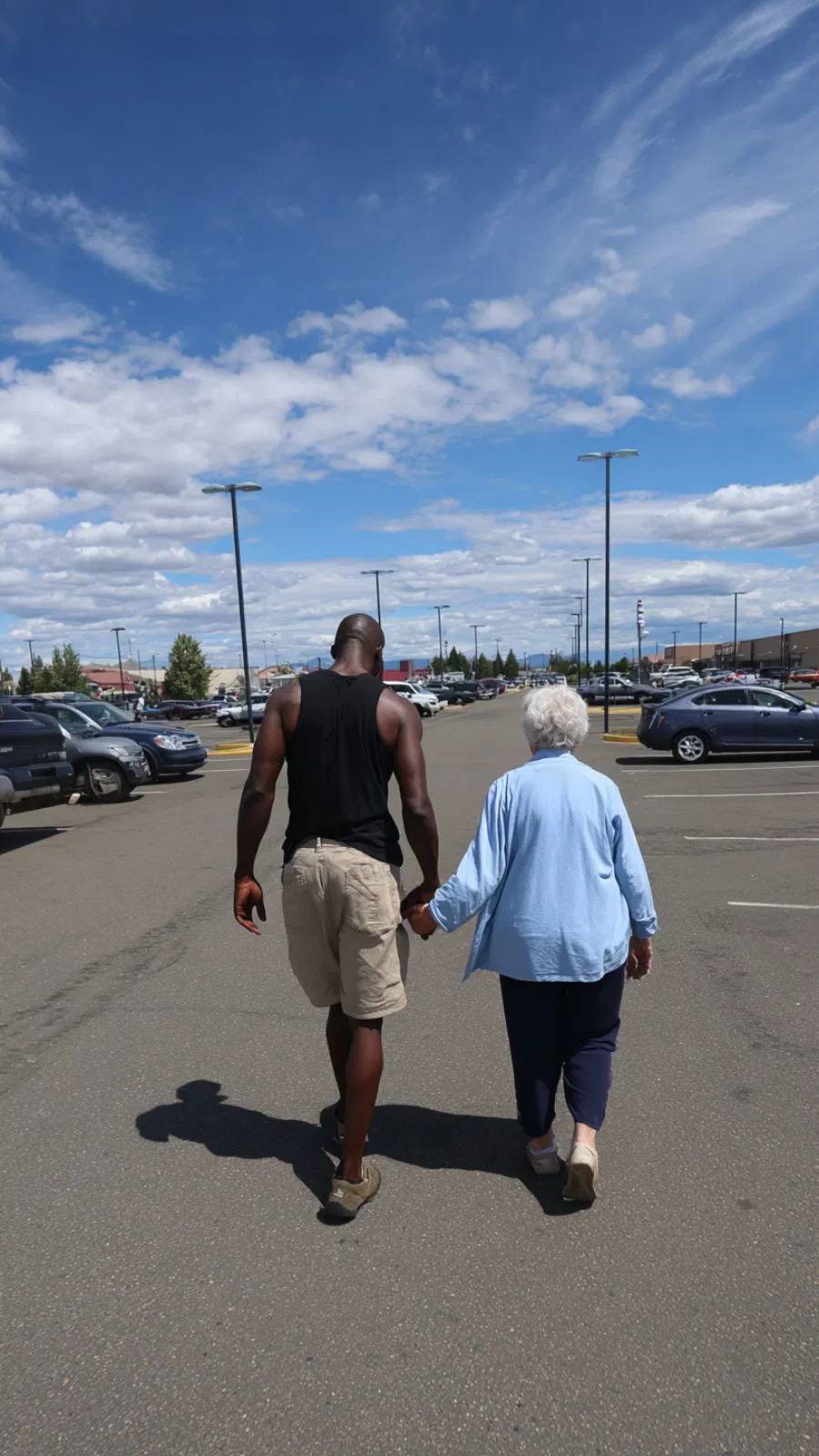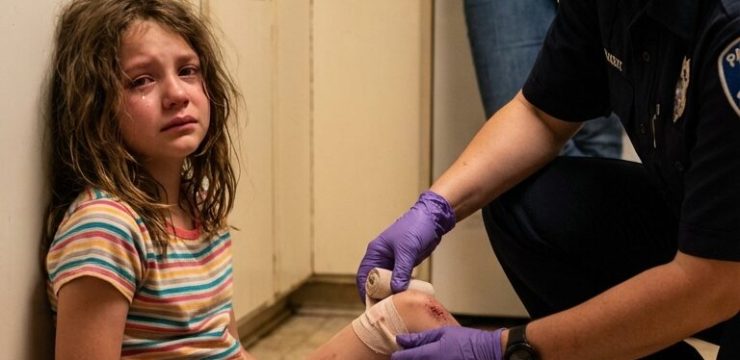I never intended to move into that neighborhood—it wasn’t part of any plan. It happened out of desperation, not choice. My husband had died just three weeks earlier, and the combination of his medical bills, funeral costs, and our mounting debts had left me emotionally drained and financially shattered. The only place I could afford had rent so cheap it felt suspicious. I found out why almost immediately. On move-in day, I was unloading my things when a tall man started walking toward me from across the street.

He had a towering build, tattoos running down his arms, and shoes that looked like they’d seen the inside of a boxing gym. I froze in place, clutching my purse as if it could protect me from what I assumed was a threat. But when he spoke, his voice stopped me cold. “You alright, ma’am?” he asked in a deep, steady, and surprisingly kind voice. I hesitated before quietly saying, “I don’t feel safe here.” He nodded, scanning the area. “Most people don’t,” he said. “That’s why I stay outside—to make sure folks like you don’t have to walk alone.” Then, without asking, he grabbed one of my bags and carried it to my door. We didn’t speak again until we reached my porch, where I asked him why he did that. He gave a slight smile and said, “Someone did it for my mom once. Changed her life. Changed mine.” And just like that, he was gone.
For the first time since losing my husband, I didn’t feel entirely alone. That night, I opened my blinds a little more than usual. The next morning, I found a paper bag on my porch with a handwritten note: “Fresh from Miss Anita’s—start with the peach scone.” Inside were three still-warm pastries. No name, but I knew exactly who left them. Over the next few days, I saw him all over the neighborhood—helping an elderly man with groceries, chatting with teens like a big brother, calmly breaking up an argument outside the liquor store. Curious, I asked the woman at the corner shop about him. “That’s Marcus,” she told me. “Lives with his sister two blocks over. Been through a lot.” When I gently asked what she meant, she said he lost his dad young, was raised by a single mom, got involved with the wrong crowd, but turned things around.
Now, he was in school and working part-time at the rec center. That night, I baked banana bread—my one foolproof recipe—and brought it to the rec center. Marcus was outside talking with two kids, and when he saw me, he stood. “I figured you were behind the pastries,” I said, handing him the bread. He laughed. “Busted.” I said it wasn’t much, just a small thank-you. He smiled again and said, “That means a lot. Thanks for seeing me as more than a threat.” That was the beginning. We started chatting more, and I learned he was only twenty-eight, though he carried himself like someone much older. His sister Leila was seventeen and about to graduate. He juggled work and school with barely a break.
One night, he showed up at my door with a toolbox. “Your porch light’s flickering,” he said. “Thought I’d fix it before it goes out.” I made us tea while he worked, and that became our routine. Then, one night, I was startled awake by shouting. A woman was screaming across the street. I peeked out and saw a man waving a bottle at her. I called Marcus. “There’s a fight outside,” I whispered. “She’s scared.” “Stay inside,” he replied. “I’m on my way.” I watched him walk straight into it—calm and fearless. The man backed off. The woman cried. The next morning, she was on his porch having coffee with Leila. Marcus wasn’t just helping people—he was holding the neighborhood together. Then, suddenly, he disappeared. No calls, no texts. On the third day, Leila knocked on my door, eyes red. “He’s in the hospital,” she said. “Jumped walking home from class. They took his wallet and phone. He fought back, but they beat him bad.” I brought banana bread and flowers the next day.
His face was bruised, his arm in a sling, but he smiled. “Guess I’m not bulletproof,” he whispered. “Then rest,” I said. “Let someone else take care of things.” He looked at me and asked, “Yeah… but who?” That’s when it hit me. Me. I started helping out—walking seniors to the market, picking up trash, helping organize a food drive. I wasn’t Marcus, but I could show up. People noticed. Teens turned down their music when I passed. Tre walked Miss Clara’s dog at night. Even the quiet woman across the street brought soup for Marcus. We weren’t perfect, but we were trying. Two months later, Marcus returned to the rec center—still sore, but smiling. “You really turned this place around,” he said. “No,” I replied. “You did. I just kept it moving.” That summer, we threw a block party. Music, food, laughter. Even the landlord showed up and said they’d fix the lights, clean the graffiti, and lower my rent by $100. “Why?” I asked. “Fewer complaints. More lease renewals. Keep doing what you’re doing.”
That evening, Marcus and I sat on my porch. I had iced tea. He had a popsicle. “You know,” I said, “when I first moved here, I was terrified.” He nodded. “I remember.” “Now, I feel like I belong.” He smiled. “That’s the goal.” After a pause, he said softly, “My mom died five years ago. She always told us, ‘You’re not just here to survive. You’re here to leave things better than you found them.’” I blinked back tears. “She’d be proud of you.” He looked at his melting popsicle and said, “She’d be proud of us.” Time moved on. Leila left for college. Tre applied to be a firefighter. Flowers bloomed. And me? I stayed. Because sometimes, the scariest places just need someone to stay—not to fix everything, but to care. Maybe that someone is you.





